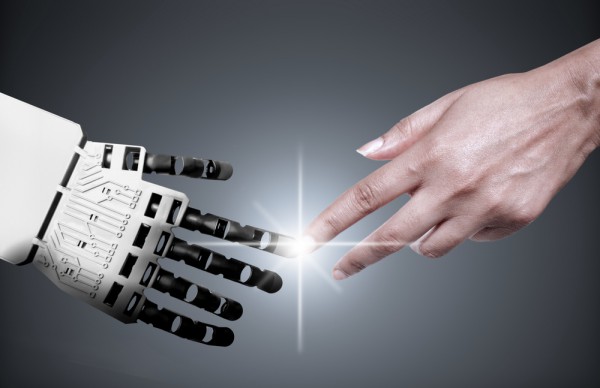AI and hiring

The advent of artificial intelligence inspired a great deal of fear in the workplace, especially regarding job displacement. As AI's potential became more apparent, workers in virtually every industry feared they would be replaced by an AI-driven alternative that could work faster and for less pay.
To date, those fears have been mostly unfounded. In fact, a recent study of nearly 3,000 different workplace skills determined none of them were “very likely” to be replaced by generative AI.
Still, AI has brought significant changes to the hiring landscape. Understanding those changes and their implications is helpful for optimizing your efforts in the new AI-influenced landscape, whether you are seeking a job or have positions to fill.
AI’s influence on the hiring process
Virtually every company has accepted that many -- some studies suggest nearly half -- job applicants use generative AI to write their resumes and cover letters. While some argue leveraging AI in the resume-writing process is no different from hiring a human resume-writing service, it does introduce some challenges for hiring companies.
For example, candidates that use AI to improve the quality of their writing remove the personal touch companies often rely on to determine if an applicant is a good cultural fit. By removing the applicant’s personality from a resume, AI leaves the hiring company with a document that is generic, impersonal, and similar to all the other resumes that are AI-generated.
Generative AI can also fail to provide the nuances that are helpful for determining an applicant's skill level. Even when primed with a great prompt, a generative AI platform may not know enough about a field or position to cast the applicant in the correct context. For example, in the case of an experienced computer programmer, it may not be able to determine what skills are relevant for a particular opening.
Those applying for jobs must now contend with AI-powered filters used by hiring companies to reduce their workload. Many companies use AI to screen resumes, identifying applicants who have relevant job experience and skills. Unlike automated applicant tracking tools that scan resumes for certain criteria, AI-driven tools can learn from a company’s engagement with resumes, providing more efficient and precise feedback.
There has been some controversy surrounding these tools, with some experts feeling biases learned by AI models and other issues are keeping companies from connecting with the best applicants. Whether or not those complaints are valid remains to be seen. Still, applicants need to understand that there are new rules they need to follow to satisfy the requirements of AI screening tools.
Beyond resume screening, today’s companies are also using AI to evaluate and summarize applicant assessments. Such tools streamline the process, allowing companies to provide feedback more quickly. The types of assessments utilizing AI vary widely, from scoring online grammar tests to analyzing an applicant’s body language during an online interview.
AI’s impact on staffing needs
When it comes to job displacement triggered by AI, the reality is not nearly as dark as the forecasts offered several years ago. AI has changed staffing needs, but not by wiping out hundreds of thousands of positions. Instead, AI’s presence in the workplace has changed expectations.
For many companies, the rapid growth of AI has created new positions. Companies using AI models must gather and process AI source data. In some cases, companies can expand their operations by creating source data for projects being carried out by other companies. In both cases, companies often create new positions to support the new operations.
Applicants who offer experience with AI will have an easier time navigating the new staffing needs. AI-powered processes have been integrated into a wide range of business operations, from email composition to lead generation to risk assessment. Companies are looking for applicants who can show they are not only comfortable with AI but also know how to take advantage of its capabilities.
AI aptitude is especially important for remote workers. Working collaboratively and maintaining a healthy work-life balance are two of the biggest challenges remote workers must overcome. AI-driven tools can support remote workers in these areas.
Leveraging AI in the collaboration process streamlines communication and keeps remote workers constantly in the loop as projects evolve. AI also empowers automations that can improve task management and optimize scheduling, enabling remote workers to increase efficiency and gain greater balance.
To understand the change AI is bringing to the workplace, think about how the introduction of the computer changed the business environment. Companies that failed to adopt the new technology quickly became obsolete, and employees who resisted it could not compete with more tech-savvy colleagues.
AI is proving to be a game-changer for hiring. Companies that use it gain a competitive advantage, and applicants who can wield it are in high demand. For both, the options are either embrace it or be beaten by it.
Photo Credit: Pixelbliss/Shutterstock
Craig Goodliffe is CEO and founder of Cyberbacker, is an entrepreneur, leadership expert, and business coach known for his expertise in cross-cultural business development. Under his visionary leadership, Cyberbacker has become a global leader in virtual assistance and administrative support services, transcending geographical boundaries to empower businesses worldwide. As a Keller Williams MAPS coach, he guides clients toward achieving seven-figure incomes. His insights have been featured in esteemed publications, including Inc., The Top 100 Magazine, and International Business Times, and he continues to share his insight as a contributor with Grit Daily and the Forbes Business Council. Craig’s global perspective is evident in the transformative impact he has on small business owners and remote workers, see more on CBS.
